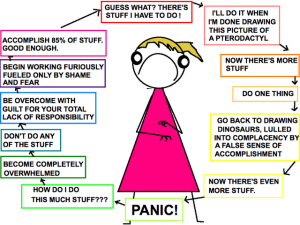How often are we faced with a system, process or application that leaves you frustrated and confused? Based on my own experiences this week, and that of many of my friends (thanks social media), it occurs pretty frequently. Feeling inspired by all this disfunction leaves me thinking about how we can quickly assess whether we have made it overly complex.
- It’s difficult to maintain – A well designed process or system is one that is easy to understand it’s purpose, and intuitive enough (or simply documented enough) for someone to maintain it. Our environments are not stagnant so we can expect our processes or systems to be.
- Users complain about it (or just don’t use it) – Processes and systems are designed to solve a business problem. If we make them so complicated and cumbersome users won’t use it, and if there is no other choice, will complain relentlessly about doing so. If the system or process requires more people to enforce it, then it’s time to take another look.
- It’s not delivering the quantifiable measure of success you thought – Again, you implemented this to solve a business problem. Hopefully, you defined a measure of success. If you are only seeing marginal improvement, or even a decline in performance against the business problem, this is highly indicative of having over-thought your solution. It’s may be time to start over.
I don’t think overly complicated systems or processes come from a malicious place, however they can be detrimental to the overall success. Be conscious of these warning signs and be aggressive if fixing these. It will make for a better overall user experience improving morale and positively impacting the bottom line.
To read more on this topic, see these blog posts by Gregory C. Smith, Code Simplicity, and David Meehan.

